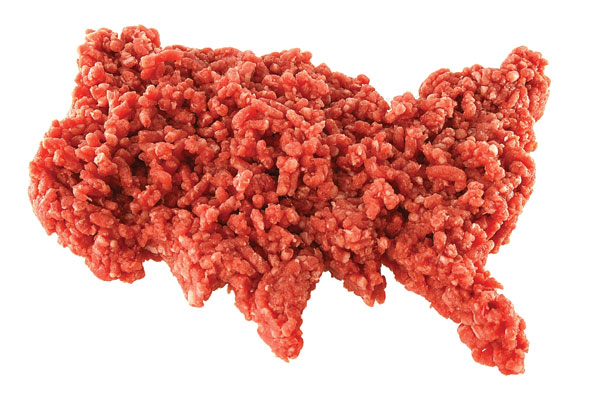How people become critical of the very food that makes them secure
October 6, 2015

A good friend and colleague, who is a 20-plus-year military veteran, once told me, “I�’ve been all over the world, and one thing I can tell you is that food security is the key. If a country can’t feed its people, the country doesn’t work. Lack of food security leads to crime and social breakdown.”
We are so fortunate to live where we do. Most of us are so food-secure that the biggest problem we have with food is obesity. We pay for gym memberships and workout DVDs because of this high level of food security. Unfortunately, even here in the U.S. we have food insecurity, and we see crime and social breakdown in areas where food is not secure.
The problem with food security is that once it reaches a certain level, people become critical of the very food that has made them secure. This is a luxury that is both wonderful and contemptible. A speaker at an animal welfare seminar a few years ago was a veterinarian from Chile. He was asked how much attention was directed toward animal welfare in Chile. His response was, “Our people are far more concerned with where their next meal is coming from.”
Since Idaho’s Agricultural Security Act was ruled unconstitutional in August, many are wondering if other laws of this nature will continue to stand. No matter your opinion on this issue, it is disheartening that farms feel the need to secure this kind of protection.

70 photos show ranchers hard at work on the farm
Readers have submitted photos of hard-working ranchers caring for their livestock and being stewards of the land. See reader favorite photos here.
But it isn’t just animal rights activists who are critics of our food. There are a multitude of “experts” no farther away than the nearest computer who would like the consumer to follow their advice on what is sustainable, wholesome, safe and nutritious. GMOs, growth promotants and “chemicals” are some of these experts’ favorite targets. With less-than-sage advice such as “Don’t eat anything you can’t pronounce,” or “If it has a chemical in it, don’t eat it,” they frighten a trusting consumer. These “experts” freely express their opinions, and many people believe what they hear and read: not because it is factual, but rather because they want to believe it. It fits their bias.
Many consumers don’t realize that everything we eat or drink is a chemical. The classic example is dihydrogen monoxide. Every person who has ingested this chemical either has died or will die. The common name of this chemical, of course, is water.
In spite of the secure food supply that agriculture brings to the table (pun intended), our detractors would like to upset that security. They accomplish this by attempting to take production technologies away and expanding regulations. This is done under the facade of helping the small farmer battle “big ag.”
But, even though our critics would have us believe that they would like to end all so-called factory farms, their actions make it more difficult for the smaller farmers to survive. Technology, after all, can benefit everyone, regardless of operation size. Take away this efficiency, and all operations must expand so they can spread the increased cost over more animals or acres.
The availability, variety and cost of food we enjoy in this country is a stunning success story of which we can be very proud. The ingenuity we use to produce it is one of the many things that makes our country great, and the fact that we have such a high level of food security makes our country strong. Thank you, my friend, for pointing out how lucky we are.
Dave Sjeklocha, DVM, is operations manager of animal health and welfare for Cattle Empire LLC, Satanta, Kan. He can be reached at [email protected].
You might also like:
15 photos showcase hardworking American ranchers
Genetic accident produces White Angus
What's the best time to castrate calves? Vets agree the earlier the better
Burke Teichert shares the secrets of a profitable cow
How to prevent & treat pinkeye in cattle
You May Also Like


.png?width=300&auto=webp&quality=80&disable=upscale)
